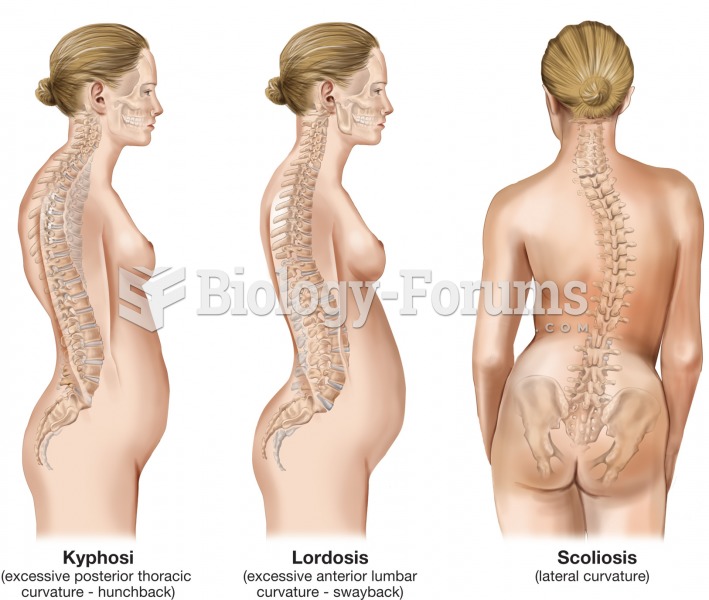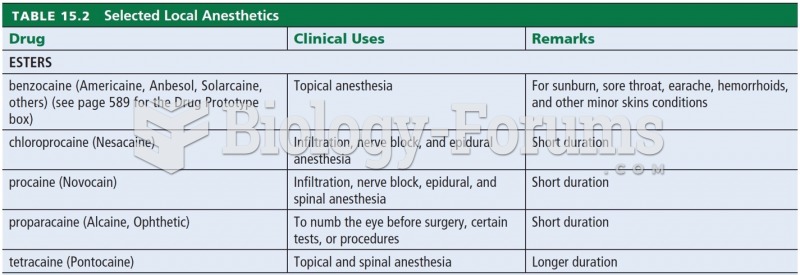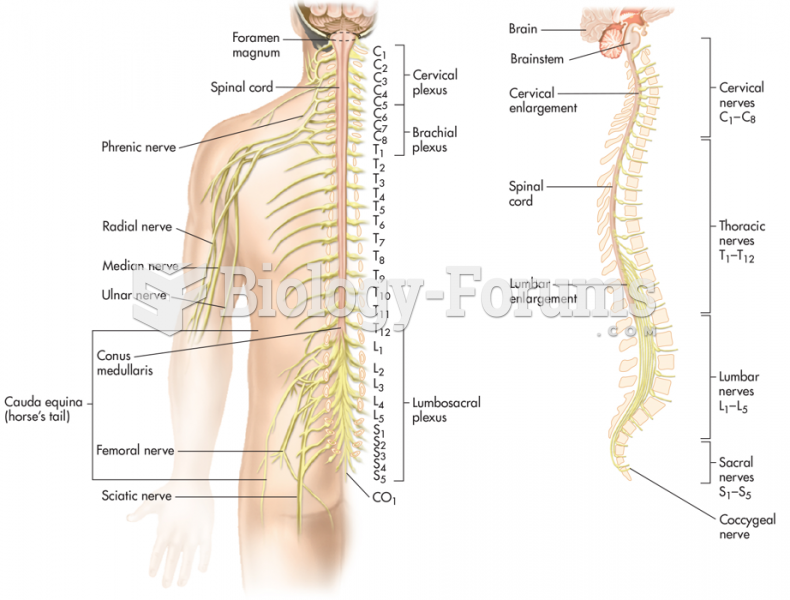|
|
|
All adults should have their cholesterol levels checked once every 5 years. During 2009–2010, 69.4% of Americans age 20 and older reported having their cholesterol checked within the last five years.
Cancer has been around as long as humankind, but only in the second half of the twentieth century did the number of cancer cases explode.
Children with strabismus (crossed eyes) can be treated. They are not able to outgrow this condition on their own, but with help, it can be more easily corrected at a younger age. It is important for infants to have eye examinations as early as possible in their development and then another at age 2 years.
Human stomach acid is strong enough to dissolve small pieces of metal such as razor blades or staples.
Blood in the urine can be a sign of a kidney stone, glomerulonephritis, or other kidney problems.







